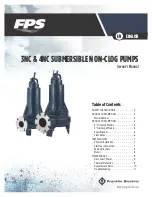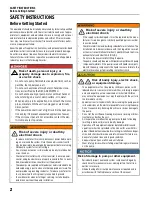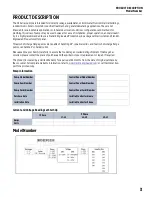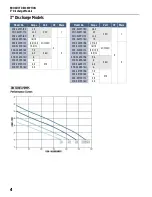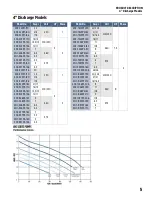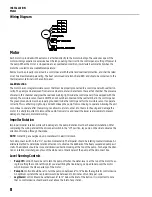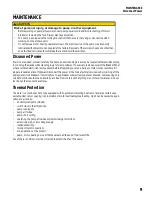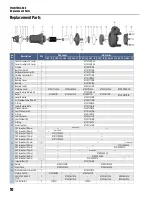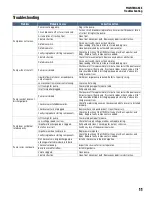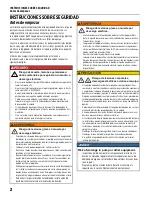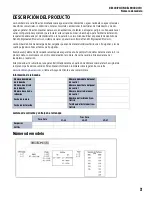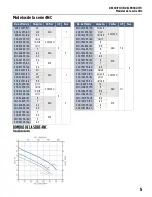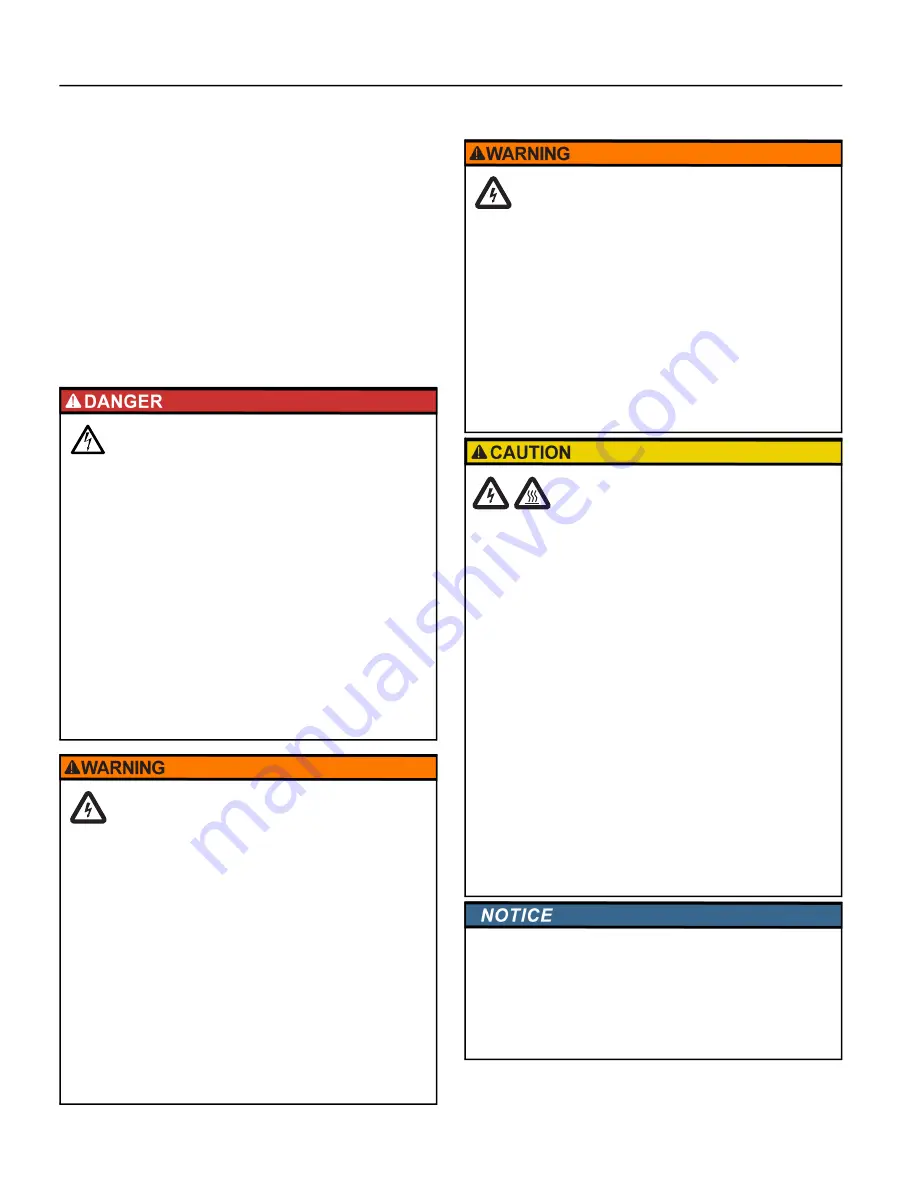
SAFETY INSTRUCTIONS
Before Getting Started
2
SAFETY INSTRUCTIONS
Before Getting Started
This equipment should be installed and serviced by technically qualified
personnel who are familiar with the correct selection and use of appro
-
priate tools, equipment, and procedures. Failure to comply with national
and local electrical and plumbing codes and within FPS recommenda
-
tions may result in electrical shock or fire hazard, unsatisfactory perfor
-
mance, or equipment failure.
Know the product’s application, limitations, and potential hazards. Read
and follow instructions carefully to avoid injury and property damage.
Do not disassemble or repair unit unless described in this manual.
Failure to follow installation or operation procedures and all applicable
codes may result in the following hazards:
Risk of death, personal injury, or
property damage due to explosion, fire,
or electric shock.
•
Do not use to pump flammable or explosive fluids such as
gasoline, fuel oil, kerosene, etc.
•
Do not use in explosive atmospheres or hazardous loca
-
tions as classified by the NEC, ANSI/NFPA70.
•
Do not handle a pump or pump motor with wet hands or
when standing on a wet or damp surface, or in water.
•
When a pump is in its application, do not touch the motor,
pipes, or water until the unit is unplugged or electrically
disconnected.
•
If the power disconnect is out of sight, lock it in the open posi
-
tion and tag it to prevent unexpected application of power.
•
If the disconnect panel is not accessible, contact the elec
-
tric company to stop service.
Risk of severe injury or death by
electrical shock.
•
To reduce risk of electrical shock, disconnect power before work
-
ing on or around the system. More than one disconnect switch
may be required to de-energize the equipment before servicing.
•
Wire pump system for correct voltage.
•
Do not use an extension cord; provide a properly located outlet
or junction box.
•
Check electrical outlets with a circuit analyzer to ensure power,
neutral, and ground wires are properly connected. If not, a quali
-
fied, licensed electrician should correct the problem.
•
These pumps are supplied with lead wires and is intended to be
hardwired using a junction box or other approved enclosure. The
pump includes a grounding conductor. To reduce risk of electric
shock, be certain that it is properly connected to ground.
•
To avoid hazards when installing or servicing, install a double-
pole disconnect near the pump installation.
Risk of severe injury or death by
electrical shock.
•
If the supply cord is damaged, it must be replaced by the manu
-
facturer, its service agent, or similarly qualified persons in order
to avoid a hazard.
•
Check local electrical and building codes before installation. The
installation must be in accordance with their regulations as well
as the most recent National Electrical Code (NEC) and the Occu
-
pational Safety and Health Act (OSHA).
•
Do not use the power cord for lifting the pump.
•
The pump should only be used with liquids compatible with pump
component materials. If the pump is used with liquids incompati
-
ble with the pump components, the liquid can cause failure to the
electrical insulation system resulting in electrical shock.
Risk of bodily injury, electric shock,
or equipment damage.
•
This equipment must not be used by children or persons with
reduced physical, sensory or mental abilities, or lacking in experi
-
ence and expertise, unless supervised or instructed. Children
may not use the equipment, nor may they play with the unit or in
the immediate vicinity.
•
Equipment can start automatically. Always unplug the pump power
cord and disconnect the electrical power before servicing the pump.
•
Do not run pump dry. Running dry will cause serious damage to
the pump.
•
Do not let the unit freeze. Freezing may cause cracking or distor
-
tion that may destroy the unit.
•
An inoperative or malfunctioning pump could lead to flooding,
resulting in personal injury or property damage.
•
Operation of this equipment requires detailed installation and
operation instructions provided in this manual for use with this
product. Read entire manual before starting installation and oper
-
ation. End User should receive and retain manual for future use.
•
Keep safety labels clean and in good condition.
•
Keep work area clean, well-lit, and uncluttered.
•
Wear safety glasses while installing or performing maintenance
on the pump.
Risk of damage to pump or other equipment.
•
Periodically inspect pump and system components. Regularly
check hoses for weakness or wear, making certain that all con
-
nections are secure.
•
Schedule and perform routine maintenance as required and in
accordance with the Maintenance section of this manual.

